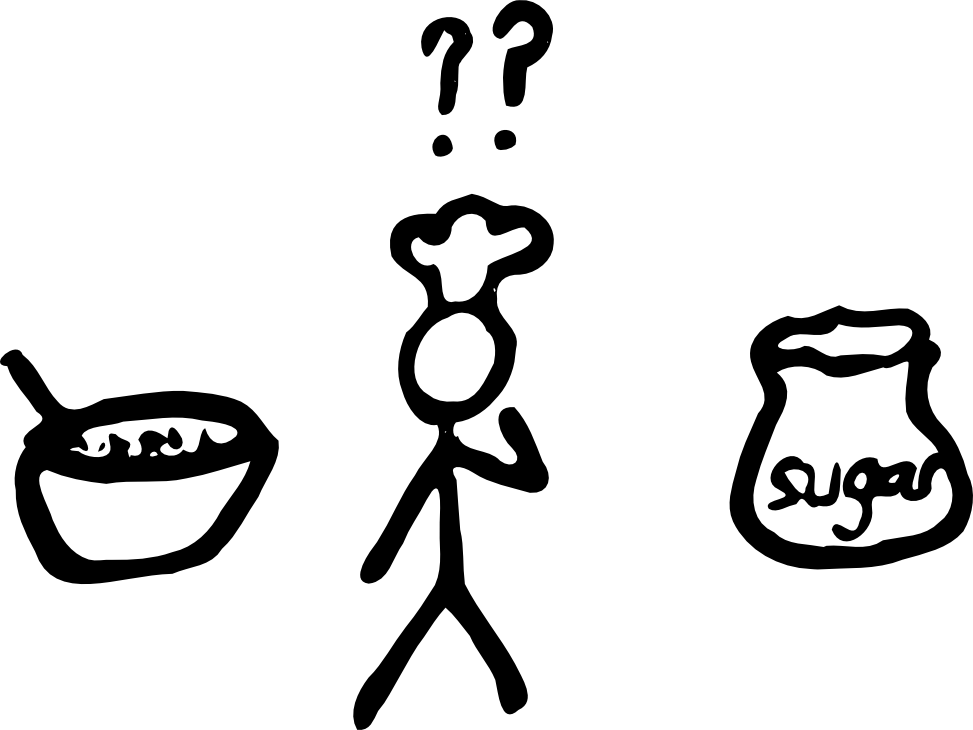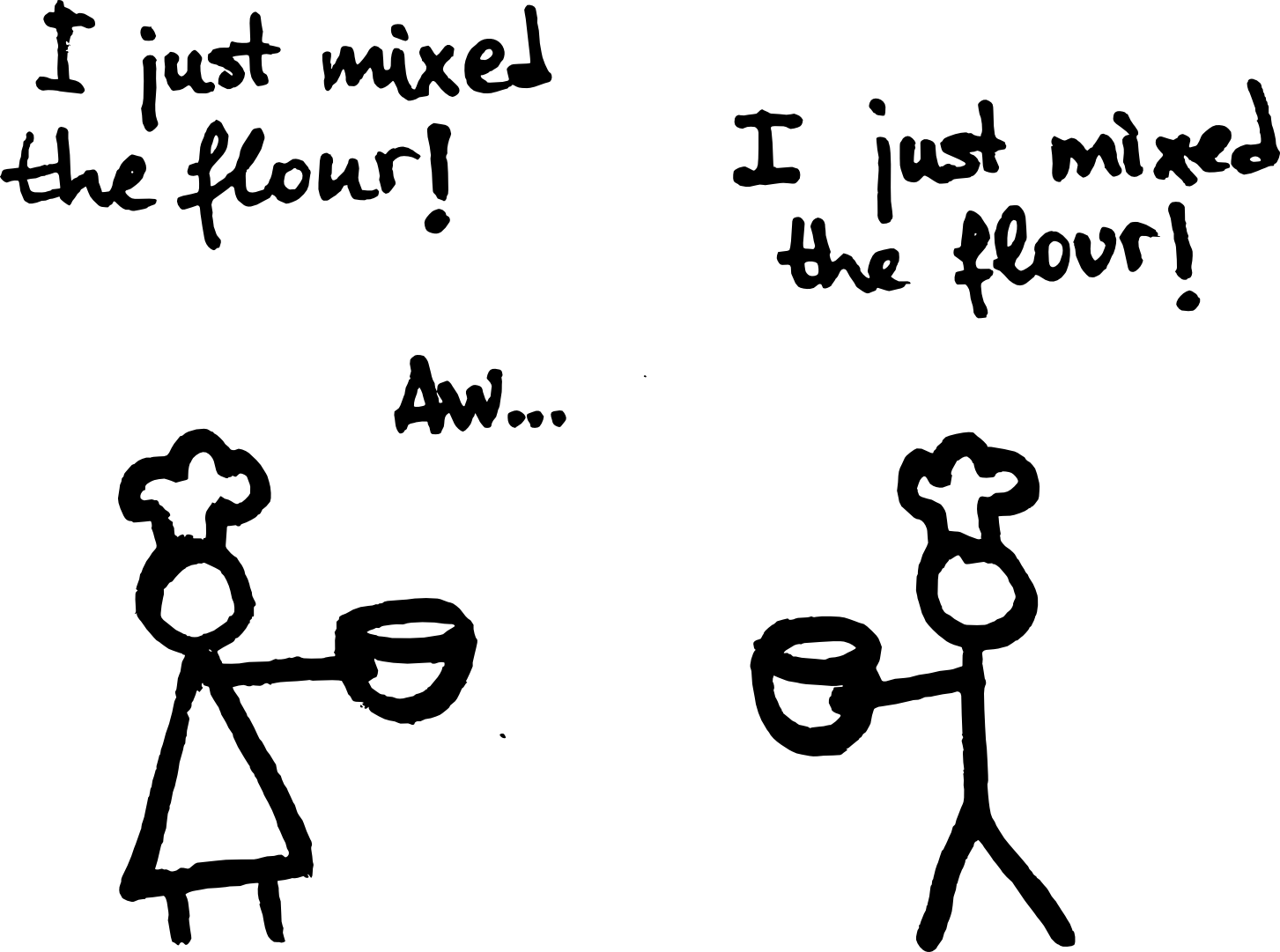POSTS
Baking papers, or why scientific writing is so difficult
by Luis P. Prieto, - 5 minutes read - 911 wordsWriting (papers or the dissertation itself) is one of the activities that many doctoral students hate the most. Why is this act of communication so difficult for us? As a prelude to my post on “how I write papers”, I expose some misconceptions we seem to have about scientific writing and what are good ways to learn it.
Scientific writing is one of the most dreaded tasks for many Ph.D. students1, and understandably so. Unless you are in the humanities, you probably signed up to “do science”: do experiments, gather evidence, analyze data, read tons of books… not to become an accomplished writer! To make matters worse, doctoral programs have surprisingly little training on basic (and specifically scientific) writing skills. It seems like we either assume that 1) people come to the doctoral level already knowing how to write scientific texts; or 2) it is such an easy skill to master that it’s pointless to teach it. Lets look at these two assumptions:
It is an easy skill. Sadly, for most doctoral students, their scientific writing training is reduced to “read a lot of scientific papers and you will get it… eventually”. But probably you see the problem here: it is quite difficult to acquire a skill to make something just by seeing finished products (i.e., published papers). This is a bit like training bakers to make bread, just by showing them finished, beautifully decorated loafs of bread and baguettes. Imagine bakers not being encouraged to get their hands dirty with flour! Luckily, our bakers probably get proper vocational training in which they see how their products are manufactured from start to finish. As a consequence, I have yet to meet a baker that is terrified of making bread.
People already know how to write. Yes, that’s what our primary and secondary schools are for, right? or the bachelors, or the masters. The problem is that scientific writing is a very particular genre, with values and criteria that are quite different from literary writing (which focuses on aesthetics or emotional impact), political or marketing writing (focusing on persuasion, when not obfuscation), or the kind of “composition piece writing” that many of us learned at school (which focuses on piling up text until you have X number of words). This kind of “writing by accumulation of words” leads to doctoral student texts often lacking structure, preciseness, and being an over-long mishmash of ideas. Scientific writing focuses on logical argumentation, clarity of concepts, unambiguity, traceability of sources… very, very different from any other genre. Coming back to the baker metaphor, it’s like trying to make soufflés when you have been doing coarse whole-wheat bread all your life (it might not occur to you that texture is important, or that you can actually put sugar in these things!).
Aside from these two misconceptions, there are plenty of other complicating factors, like the fact that English (the dominant language in most scientific fields) is not the native language of a big majority of our doctoral students. Most of our training as writers has probably developed in an entirely different language. Try to make a soufflé after growing up somewhere in Asia where wheat or milk were rare or unheard of…
And there is yet another difference between scientific writing and other genres: it is, more often than not, a collaborative process. Although, as a doctoral student, you find yourself writing mostly on your own, chances are that you will get feedback from your advisors or other colleagues at some point. During the publishing process, reviewers and editors will also help you make a better paper out of your ideas (even if we do not always perceive it as a collaboration). This collaborative nature of scientific writing begs many questions: at what point should I share my ideas with collaborators, and in which form? is it better to do it often or rarely? what if they are too busy or too slow? et cetera. Again, if you have never baked bread with other people, it may be puzzling who should do what, and at what point in time.
These misconceptions and differences (along with the fact that more senior researchers and advisors seldom recognize having difficulties in writing) lead to students being ashamed when they have writing problems, which in turn leads to anxiety, “writer’s block”, etc. Maybe this is also why I seldom get the question “How do you write papers?”.
So, you did not ask for it but… In the next post, I will share the step-by-step process I find myself following after (collaboratively) authoring and publishing more than 70 scientific papers. The misconceptions and issues that I just described have shaped that writing process, as well as the principles behind it (my “10 commandments of writing”, also in a later post). For now just remember that, as a Ph.D. student, you are not alone in these hardships. We all faced them. We all learned… eventually. More or less.
Talk to others.
See how they get out of their writer’s block.
Do you agree with these problems and misconceptions? Do you think there are other, more important factors that make scientific writing difficult? Let me know in the comments!
-
Wellington, J. (2010). More than a matter of cognition: An exploration of affective writing problems of post-graduate students and their possible solutions. Teaching in Higher Education, 15(2), 135–150. ↩︎

Luis P. Prieto
Luis P. is a Ramón y Cajal research fellow at the University of Valladolid (Spain), investigating learning technologies, especially learning analytics. He is also an avid learner about doctoral education and supervision, and he's the main author at the A Happy PhD blog.


